Share the page
Our approach to promoting gender equality
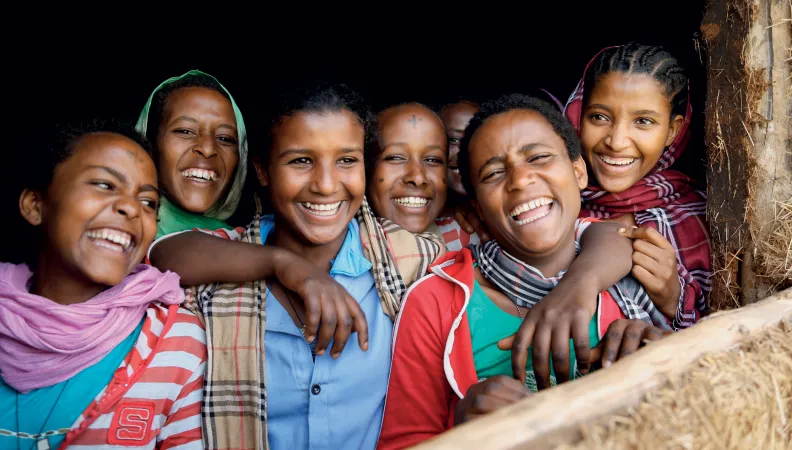
Gender equality remains an urgent, defining challenge for sustainable development. Inequalities deepen with each new political, economic, health, climate and social crisis. Women and girls are more at risk of violence and they remain underrepresented in decision-making arenas. This is despite the fact that they play an essential role in the advent of fairer, more inclusive, more sustainable, more peaceful societies.
For this reason, we stand firm in promoting gender equality. We align our focus areas with France’s International Strategy for a Feminist Diplomacy as well as with the Gender Action Plan III (GAPIII) of the European Union (EU). This means that we actively contribute to achieving the Sustainable Development Goals (SDGs) 5, 10 and 16, which target lasting, tangible equality of the sexes.
Our approach aims to meet the needs of our international partners and kickstart deep change in social norms and power relations. We co-create global solutions through multi-stakeholder, multilevel partnerships with local public bodies, the private sector, and civil society organisations.
131 years
At our current rate of change, we will have to wait another 131 years for global gender equality. In 2024, not a single country achieved equality of the sexes. A third of countries had not made any progress since 2015. And in 18 countries, equality between men and women worsened, for example in Venezuela, Afghanistan and South Africa.
Source: World Economic Forum, Global Gender Gap Report 2023
Our strategic priorities
Inequalities between men and women directly impact economic growth, political stability, social cohesion and human capital.
To combat these inequalities, we use a systemic, holistic, intersectional approach to promoting equality between men and women in every facet of our work. Every one of our projects includes advocacy for gender equality to bring about visible, lasting change.
The ultimate goal of our approach is to build peaceful, fair, inclusive societies in which women fully enjoy and exercise their economic, political and physical rights. Our work helps to strengthen public policy that campaigns for gender equality in six target areas.
- Economic and financial autonomy through sustainable innovation and better working conditions
- Autonomy for women and girls through access to education and training
- Political and public participation and access to the spheres of decision-making
- Full enjoyment of rights, access to justice and reform of the justice system
- Access to healthcare, health products and a better social protection system
- Access to sexual and reproductive health and rights
- Reduction of vulnerability to pandemics
- Fight against gender-based violence in times of peace and conflict
- Fight against impunity and violent extremism
- Participation of women in peace processes and conflict resolution
- Support for local feminist and civil society organisations
- Support for national institutional policies championing gender equality
- Environmental justice, a just transition and gender equality in climate action
- Management, adaptation and mitigation of climate risks
- Equitable access to and management of natural resources, preservation of ecosystems and inclusive urban development
- Fight against online gender-based violence
- Access to inclusive digital media and technology for women and girls
- Combating gender bias in digital media
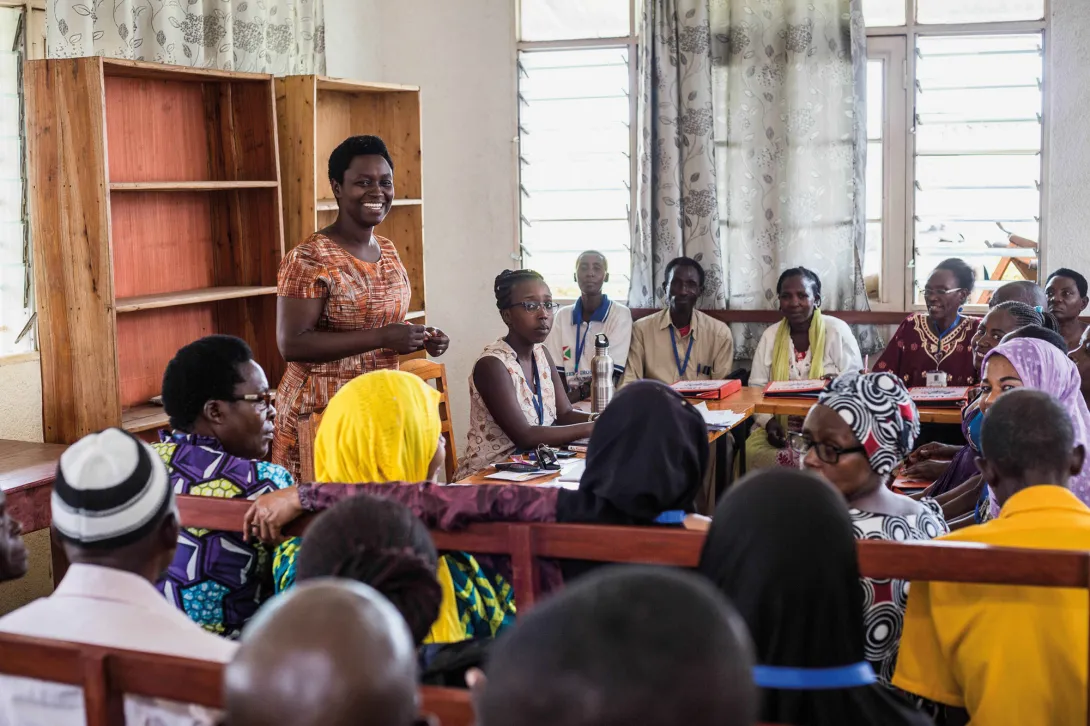
Our framework for action
Our work aligns with the gender equality policies of France and Europe. It also adheres to the following frameworks for cooperation around the world:
- Agenda 2030 as adopted in 2015 by the General Assembly of the United Nations:
- EU Action Plan on gender equality and the empowerment of women and girls in the EU’s external actions (GAP III 2021-2025)
- The Human Rights and Development Strategy of the French Ministry for Europe and Foreign Affairs, which emphasises an inclusive approach to tackling inequalities.
- France’s International Strategy for a Feminist Foreign Policy (2025–2030)
- The “100% Social Link” commitment of the Agence Française de Développement (AFD group). This commitment aims to support fair, inclusive, equal societies. It underpins all the Group’s operations, and has two main goals: to reduce inequalities and promote inclusion; and to achieve gender equality through transformative feminist action.
- Expertise France’s Roadmap for Gender Equality (2020–2022, currently being revised)
Our services in this area
As France’s international development cooperation agency, we work with our partners around the world to support policies and projects that are adapted to local needs and campaigns for gender equality.
Our approach to championing gender equality is based on co-creation, peer-to-peer learning and a range of interrelated services, which can be rolled out as needed:
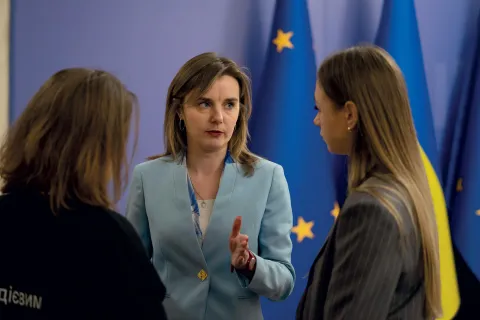 © DR Expertise France
© DR Expertise France
- Capacity building and peer-to-peer learning
- Creation and running of stakeholder networks
- Knowledge sharing and the running of ideation and knowledge creation workshops
- Injection of public and private expertise
- Awareness raising and communication campaigns for gender equality
- Drafting of studies, audits, action plans and legislative texts
- Management of funds and financial advice
- Gender budgeting and generation of gender statistics and data
In every phase of our projects, we take an intersectional, multisector approach to the challenges of gender equality with a core focus on human rights.
Resources for download
FAQ
More about gender equality
“Gender” is a sociological concept from the social sciences. It describes how relationships and social roles are defined and attributed between men and women based on a sociocultural construct in a given society at a given time in its history. In other words, gender is a tool that can be used to analyse social differences between men and women and to explore power dynamics between the sexes.
The biological term “sex” refers to the physical attributes of men and women as these pertain to the reproduction of the human species. To put it another way, a person is born “male” or “female (sex) but becomes a “man” or “woman” (gender).
Gender equality means equal rights, responsibilities and opportunities between men and women as well as between boys and girls, regardless of their gender identity. It does not mean that men and women become identical. It simply means that their rights, obligations and chances in life do not depend on whether they are born a man or a woman.
Gender equality is a fundamental principle in human rights and a springboard for fairer, more inclusive, more sustainable development.
An inclusive institution is a public or private body that guarantees equal access to rights and services for all, without discrimination. This requires policies that account for differences in gender, age, social situation, sexual orientation and disability, among others.
Inclusive institutions are committed to representing the diversity of society. They fight against structural inequalities and strengthen public participation among all social groups.
Inequalities between the genders are still a major obstacle to sustainable development:
- More than 340 million women and girls will be living in extreme poverty by 2030 if nothing changes (UN, 2023). There are 24.3 million more women living in extreme poverty than men (The Gender Snapshot 2024, UN Women).
- The next generation of women will spend around 2.3 hours more on unpaid domestic work than men (UN, 2023).
- In 2024, 27% of seats in national parliaments were held by women (UN Women, 2024).
- More than 230 million women and girls alive today have been the victims of female genital mutilation in the 30 countries in Africa, the Middle East and Asia where such mutilations are practised.
- Cases of conflict-related sexual violence increased by 50% between 2022 and 2023. Women and girls were the victims in 95% of these crimes (UN, 2024).
- In 2022, more than 133 women were killed every day by their intimate partner or a member of their family (UNODC and UN Women, 2023). More than a quarter of the world population thinks it is acceptable for a man to beat his wife (UNDP, 2023).
- Climate disasters are not gender-blind. Women and children are 14 times more likely to die than men in natural disasters (UNHCR, 2022).
- Nearly half of the world population thinks that men make better political leaders than women, and 43% think that men make better business leaders than women (UNDP, 2023).
These statistics show why it is important to strengthen public policy, health systems, education systems, social protection and justice to guarantee the basic rights of women and girls in the world.
A gender stereotype is a simplified and often rigid representation of the roles, characteristics and behaviours that society attributes to men and women. For example, it is a stereotype to believe that women are naturally gentle or that men are naturally strong.
These stereotypes deepen inequality between the sexes and hamper equal access to education, work, health, justice and political participation. In France, Europe and elsewhere, it is essential to fight these stereotypes as a way of championing gender equality, protecting fundamental rights and promoting development that works with and for women and girls through inclusive public policy.
The SDGs are international targets adopted by the United Nations (UN) to eradicate poverty, protect the planet and ensure prosperity for all. Three SDGs specifically aim at promoting gender equality:
- SDG 5: Achieve gender equality and autonomy for all women and girls
- SDG 10: Reduce inequalities between and within countries, including inequalities in income based on gender (among other targets)
- SDG 16: Achieve peaceful, inclusive societies for sustainable development, ensure everyone has access to justice, and build institutions that are effective, accountable and inclusive at all levels.
From these goals, it is clear that equality of the sexes is a necessary condition for peace, prosperity and sustainable development.
A range of legal texts and strategic frameworks in Europe and internationally define and protect women’s rights. These laws, codes, conventions, strategies and regulations include:
- CEDAW (1979): Convention on the Elimination of All Forms of Discrimination against Women
- Cairo International Conference on Population and Development (1994) and Beijing World Conference on Women (1995)
- GAP III (2021–2025): The Gender Equality Action Plan of the European Union (EU) for promoting gender equality and women’s empowerment in EU external action
- France’s International Strategy for a Feminist Foreign Policy (2025–2030)
Gender-based violence (GBV) includes all violations perpetrated against a person because of their gender identity. These include physical, psychological, sexual, socio-economic and online violence. These violations may take the form of verbal harassment, online harassment, restrictions on freedom, rape and murder.
GBV arises because of power differences between the genders in various social settings. These differences hamper gender equality. In France and elsewhere in Europe, it is imperative to combat GBV to ensure basic rights, safeguard access to work, protect women and girls, and promote sustainable development through inclusive public policies rooted in human dignity.
Women’s sexual and reproductive health and rights (SRHR) are protected by several legal texts and international conventions:
- Convention on the Elimination of All Forms of Discrimination against Women (CEDAW, 1979)
- Cairo International Conference on Population and Development (CIPD, 1994)
- The Universal Declaration of Human Rights
- SDG 3 (health) and SDG 5 (gender equality)
- The commitments made at the Generation Equality Forum (Paris 2021)
These rights safeguard women’s sexual and reproductive health. This includes the right to make free, informed, responsible decisions about sexuality, reproduction, marriage, contraception and the use of sexual health services.
“Feminism” is sometimes seen as a controversial term. Yet it is simply a philosophy for promoting gender equality in all facets of life, including rights, work, education and health. With this in mind, France and Europe have developed an international strategy for feminist diplomacy.
Any country that adopts this strategy must build its foreign policy around gender equality and the rights of women and girls.
Having adopted the strategy, France now prioritises gender equality in every facet of its European and international policy. This includes its work in peace and security, climate and the environment, development, democratic governance, human rights, humanitarian aid, the economy, trade and finance, digital media, arts, culture and heritage, education, health and food security.
Gender equality is now an integral part of France’s bilateral and multilateral diplomacy as well as its consular activities. Indeed, France further cemented its commitment to gender equality by amending the French constitution in March 2024 to reaffirm the right of women to abortion.
In 2019, France became the fourth country to adhere to feminist diplomacy after Sweden, Canada and Luxembourg. Today, more than a dozen countries are committed to feminist diplomacy according to their own definitions and strategic priorities.
Through its feminist diplomacy and its efforts in Europe and the world, France defends equality, prevention of violence and access to rights for all women and girls as essential pillars of our society.
Our projects
Project Africa-Europe Youth Academy (AEYA) - Develop youth leadership in Sub-Saharan Africa
Ongoing
2025 - 2029
Funders : European Union
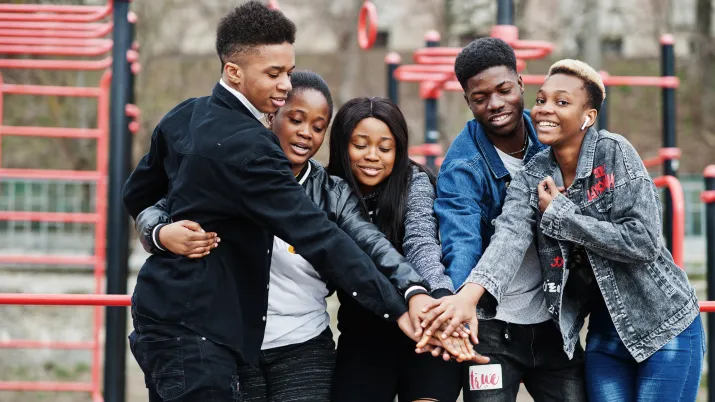
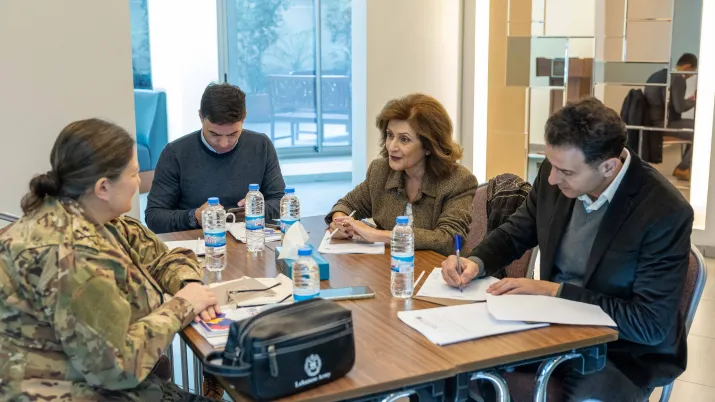
Project to support gender programmes in Colombia
Closed
2021 - 2022
Funders : Agence Française de Développement

Key figures 2024
- 208 Development Assistance Committee (DAC) 1 and 2 projects agreed between 2020 and 2023
- +46k people received training or targeted information about gender equality in 2023
- 550K people received training or targeted information about reducing inequalities between the sexes
- 1191 organisations received support in promoting gender equality
